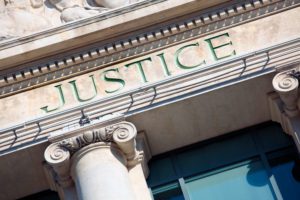 On April 26, 2022, a three-judge appellate panel decided the Hudson County case of State v. Stephen Zadroga. The principal issue under N.J.S.A. 2C:1-9 was whether double jeopardy precluded a retrial after the first ended in a mistrial after the State lost a key piece of evidence.
On April 26, 2022, a three-judge appellate panel decided the Hudson County case of State v. Stephen Zadroga. The principal issue under N.J.S.A. 2C:1-9 was whether double jeopardy precluded a retrial after the first ended in a mistrial after the State lost a key piece of evidence.
Judge Sabatino wrote for the Appellate Division in relevant part: We are persuaded the judge here reasonably terminated the trial and discharged the jury once the sudden bombshell about the mistaken blood sample was revealed. Although we have not been provided with the trial transcripts, we presume the prosecution in its opening statement presented the trial jurors with the same theme it had presented to the grand jurors, i.e. that defendant was heavily intoxicated at the time of the collision. It is also likely that some of the testifying witnesses before the hospital nurse took the stand provided testimony in support of that theme. The parties have not shown otherwise.
Once the testifying nurse’s records revealed that the blood samples tested at the State’s lab were not attributable to defendant, there was no realistic way for the jurors to ignore that enormous mistake. A limiting instruction would not have sufficed to cure the massive prejudice to the State that defense counsel would surely exploit. See, e.g., State v. Manning (1980) (finding that the prejudicial effect of testimony that should not have been admitted was “devastating” and constituted reversible error despite prompt and emphatic limiting instructions from the trial court); State v. Herbert, (App. Div. 2019) (recognizing that “jury compliance with curative and limiting instructions” cannot always be presumed, and that such an instruction sometimes may be ineffective when it concerns evidence that “bears directly on the ultimate issue”). The trial simply could not be salvaged.
This opinion has a very pro-prosecution slant to it. Any mistrial after opening statements and cross-examination prejudices the defense. This is because defense strategy is revealed and the state’s witnesses can then be prepped to rebut the strategy. Permitting the State to take advantage of this as a result of their own colossal error seems fundamentally unfair.
